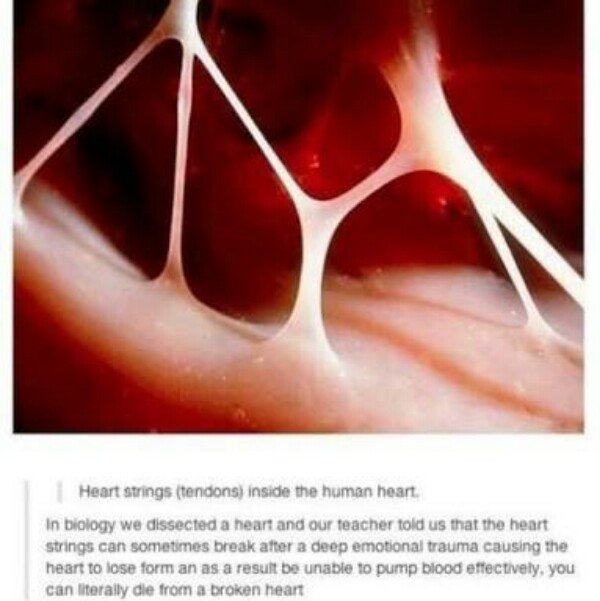MUST READ: Broken Heart Syndrome – How You Can LITERALLY Die From It
Stress cardiomyopathy, also referred to as the “broken heart syndrome,” is a condition in which intense emotional or physical stress can cause rapid and severe heart muscle weakness (cardiomyopathy). This condition can occur following a variety of emotional stressors such as grief (e.g. death of a loved one), fear, extreme anger, and surprise. It can also occur following numerous physical stressors to the body such as stroke, seizure, difficulty breathing (such as an asthmatic attack or panic attack), or significant bleeding.
Patients with Broken Heart Syndrome can have similar symptoms to patients with a heart attack including chest pain, shortness of breath, congestive heart failure, and low blood pressure. Typically these symptoms begin just minutes to hours after the person has been exposed to a severe, and usually unexpected, stress.
BHS (Broken Heart Syndrome) can definitely be life threatening in some cases. Because the syndrome involves severe heart muscle weakness, patients can have congestive heart failure, low blood pressure, shock, and potentially life-threatening heart rhythm abnormalities. The good news is that this condition improves very quickly, so if patients are under the care of physicians familiar with this syndrome, even the most critically ill tend to make a quick and complete recovery.

How does sudden stress lead to heart muscle weakness?
First, it is important to understand what “stress” is. “Stress” refers to the body’s response to things it perceives as abnormal. These abnormalities can be physical such as high body temperature, dehydration, or low blood sugar, or can be emotional, such as receiving news that a loved one has passed away. When these abnormalities occur, the body produces various hormones and proteins such as adrenaline and noradrenaline which are meant to help cope with the stress. For example, if a person is suddenly threatened and fears physical harm, the body produces large amounts of adrenaline to help that person either defend himself/herself or run faster to escape the danger. With BHS, the heart muscle is overwhelmed by a massive amount of adrenaline that is suddenly produced in response to stress. The precise way in which adrenaline affects the heart is unknown. It may cause narrowing of the arteries that supply the heart with blood, causing a temporary decrease in blood flow to the heart. Alternatively, the adrenaline may bind to the heart cells directly causing large amounts of calcium to enter the cells which renders them temporarily dysfunctional. Whichever the mechanism, it appears that the effects of adrenaline on the heart in this syndrome are temporary and completely reversable.

BHS can easily be mistaken for heart attack. Patients with this syndrome can have many of the same symptoms that heart attack patients have including chest pain, shortness of breath, congestive heart failure, and low blood pressure. However, there are some major differences between the two conditions.
First, most heart attacks occur due to blockages and blood clots forming in the coronary arteries, the arteries that supply the heart with blood. If these clots cut off the blood supply to the heart for a long enough period of time, heart muscle cells can die, leaving the heart with permanent and irreversible damage. This is completely different from what is seen with BHS. First, most of the patients with it appear to have fairly normal coronary arteries and do not have severe blockages or clots. Secondly, the heart cells of patients with BHS are “stunned” by the adrenaline and other stress hormones but not killed as they are in heart attack. Fortunately, this stunning gets better very quickly, often within just a few days. So even though a person with BHS can have severe heart muscle weakness at the time of admission to the hospital, the heart completely recovers within a couple of weeks in most cases and there is no permanent damage.
While there is no debate that chronic stress can have effects on human health, BHS appears to be a condition that comes on suddenly and unexpectedly and resolves quite quickly. If you are a person who frequently has symptoms of chest pain or shortness of breath when under significant stress, you should be evaluated by your doctor. He or she may want to perform some basic tests to make sure you are in good health. It is unlikely, however, if your symptoms have been going on for a while that you have Broken Heart Syndrome.I t may be something more severe and should be dealt with immediately.
Sources:
Medical encyclopaedia – Broken Heart Syndrome
How you could die from a broken heart (Yahoo search)
Angela lee and Seattle Successful Heart Surgeries

